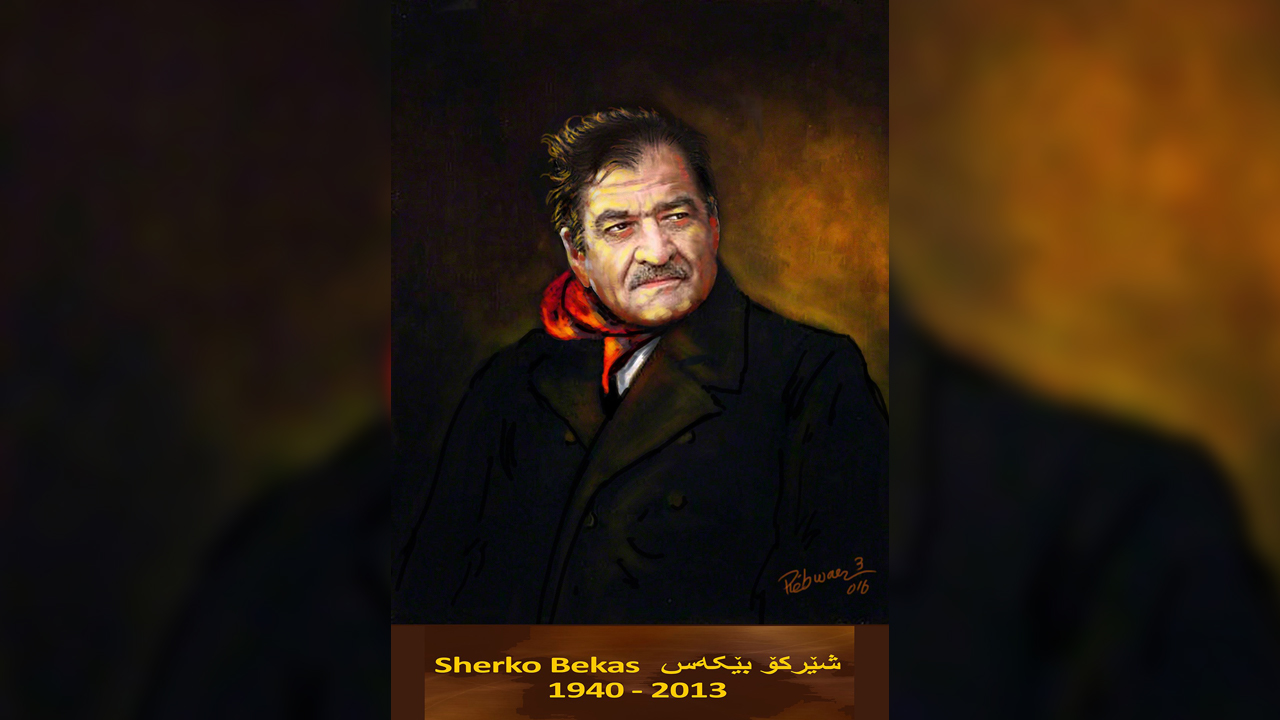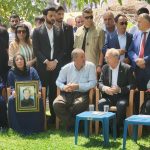[
Şêrko Bêkes, a poet as important as Arjen Arî and Erebê Şemo in Kurdish literature, was born in 1940 in Sulaymaniyah, Southern Kurdistan to an artistic family. His mother would tell him Kurdish stories when he was young, and his father was Faik Bêkes, a pioneer in Sorani literature. He lost both parents when he was a young child.
Bêkes joined the Kurdish freedom movement in 1965, and worked for the radio station Dengê Şoreşê, which means Voice of the Revolution in Kurdish. Here he started to incorporate Kurdish workers, peasants and labourers in his literature.
Bêkes was also a Peshmerga fighter in the mountains. He described himself as “a poet of resistance”. With his poems on labour, enlightenment and hope, he is considered among the pioneers of Kurdish poetry after the 1970s, the period when he introduced what he called Rûwange (vision).
Bêkes’s poems found a wider reach when they were translated by Reingard, Shirwan Mirza and Renate Saljoghi under the title The Secret Diary of a Rose in 1975. Iraqi dictator Saddam Hussein was also impressed by his work and had offered Bêkes an award. He also asked Bêkes to write an epic to praise him, columnist Pınar Doğu wrote, citing Kurdish literary critic Abidin Parıltı. The poet was exiled to Sweden in 1986 when he refused both demands.
With the establishment of the semi-autonomous Kurdistan region in Iraq and its first government in 1991, Bêkes returned to his country and became the region’s first Culture Minister. However, he was at odds with the government due to his progressive ideas about freedom and human rights.
His poems were censored again, and the newspaper he once worked for, Welat, was shut down for terrorist propaganda. Bêkes resigned from his role as minister in 1993, saying he would “not exchange a single line from my poems for 30 ministries”. He then returned to Sweden.
The poet lost his life in Stockholm in August 2013. He published 27 books of poetry in his native Sorani dialect, and his selected works “Ji Nav Şiîrên Min” (“From My Poetry”) was translated to the Kurmanji dialect, as well as other poetry compilations translated to English, French, German, Italian, Danish, Arabic and Turkish.
In 1987 Bêkes was awarded the Kurt Tuckholsky Prize, which he received from Sweden’s then-Prime Minister Ingvor Carsson.
Bêkes was also awarded the Pirêmêrd Gold Prize in 2011, given out by the Kurdistan Regional Government (KRG) since 2002 in the name of a 19th century poet from Sulaymaniyah for great contributions to Kurdish arts and literature. The word “pirêmêrd” means “old man” in Kurmanji, and is also an honorary title for the most distinguished and revered poets.
Source:MedyaNews
***Show us some LOVE by sharing it!***



